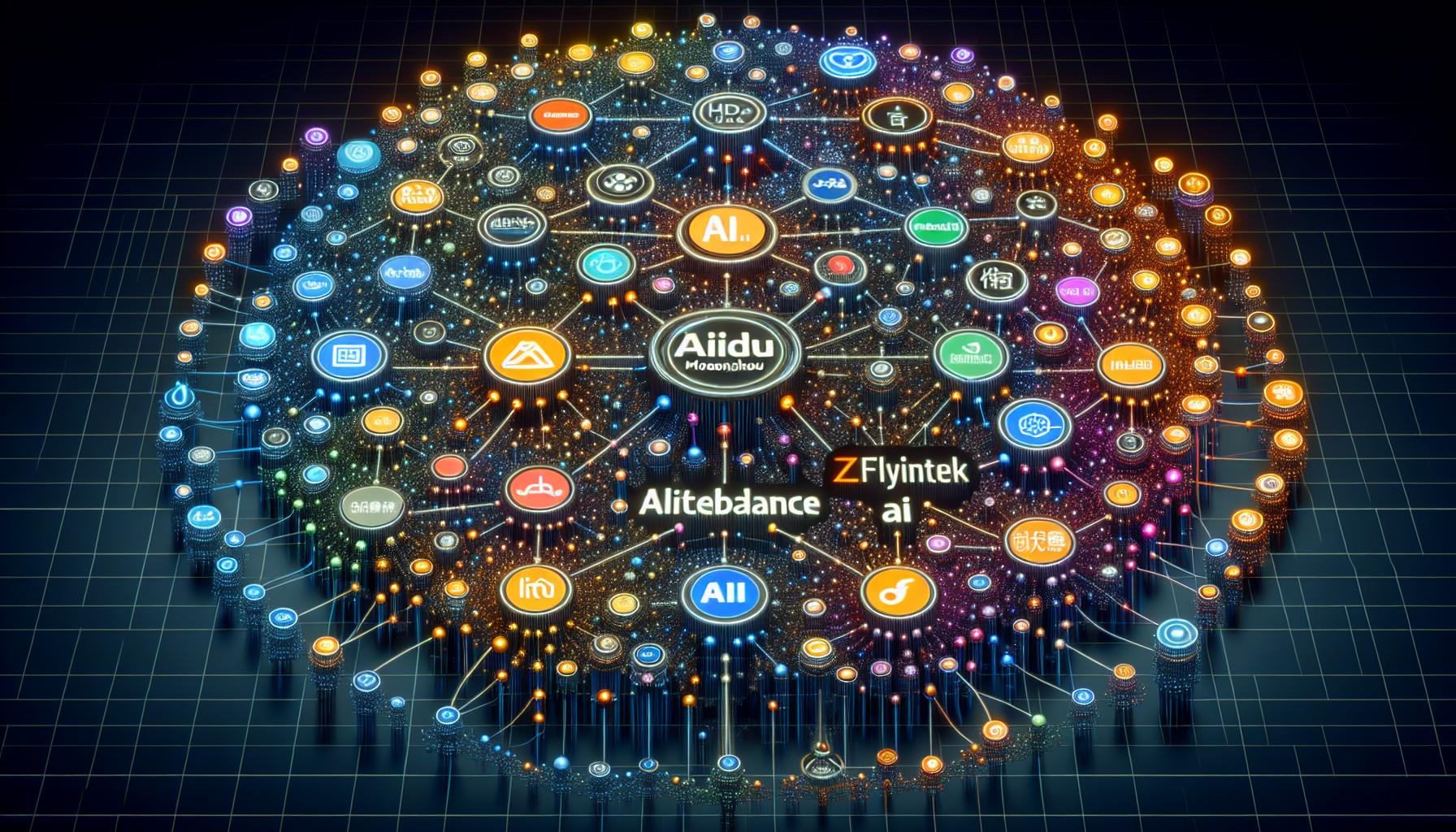Exploring China's AI Innovations: 7 Groundbreaking AI Startups You Need to Know

Introduction
China's Artificial Intelligence (AI) industry is making remarkable progress despite international trade restrictions, particularly from the United States. These limitations on advanced chips and Western-developed A.I. models are propelling Chinese companies to innovate independently. This blog will delve into the key players, from established giants to emerging startups, shaping the Chinese A.I. landscape. We'll also answer three critical questions to give you a comprehensive understanding of the current state of the industry.
Established Giants Leading the Way
The Chinese A.I. ecosystem comprises several prominent companies that have been driving significant advancements in A.I. technology. These established giants have developed technologies that not only keep pace with global trends but, in some cases, exceed expectations.
Baidu - Ernie 4.0
Baidu is one of the foremost names in A.I. innovation in China. In October, Baidu released Ernie 4.0, which CEO Robin Li claims rivals GPT-4 in terms of complex query understanding and logical reasoning. The initial release of Ernie BOT in March demonstrated capabilities in dialogue, content creation, and knowledge reasoning, making it a powerful tool for a variety of applications.
Alibaba - Qwen 2
Another significant player is Alibaba, whose cloud division launched Qwen 2 in June. This model excelled in 15 benchmarks, outperforming competitors in language comprehension and coding. It is trained on 29 languages, showcasing impressive multilingual abilities, thus making it a go-to solution for multinational enterprises seeking robust A.I. capabilities.
ByteDance - Doubao
ByteDance, the company behind TikTok, introduced Doubao in May. This chatbot has already surpassed Baidu's Ernie BOT in downloads and active iOS users. Doubao offers cost-effective large language models (LLMs) aimed at benefiting enterprises, making sophisticated A.I. more accessible to businesses of various scales.
Tencent - Hunyuan
Tencent's Hunyuan, launched in September, is a foundation model capable of generating text and images. It excels in Chinese language processing and logical reasoning. The model is available for enterprises to build custom applications, offering strategic benefits such as enhanced customer interactions and tailored A.I. solutions for business processes.
iFlytek - Spark V4.0
iFlytek's latest model, Spark V4.0, released in June, is particularly strong in language comprehension, logical reasoning, and mathematical abilities. According to some benchmarks, it even outperforms the GPT-4 Turbo, making it a promising tool for educational and professional applications.
Emerging Startups Showcasing Innovation
While the established giants are making waves, several emerging startups are also contributing to the innovation landscape in China's A.I. industry. These startups are introducing novel solutions that cater to niche markets and unique challenges.
Moonshot A.I. - Ohai, Noisee, and Kimi
Moonshot AI, based in Beijing, is making significant strides with a range of A.I. products. The Kimi chatbot, powered by its own large language model, and other products such as the Ohai role-play chat app and the Noisee music video generator, highlight the startup's innovative approach to A.I. applications.
Zhipu AI
Established in 2019, Zhipu A.I. offers various A.I. products, including chatbots and visual language models. Backed by major investors such as Alibaba, Tencent, and Saudi Arabia's Prosperity7 Ventures, Zhipu A.I. was among the first Chinese A.I. companies to receive government approval for a public model release, underscoring its credibility and potential for growth.
Challenges Driving Independent Innovation
The key challenges driving Chinese A.I. companies to innovate independently include international trade restrictions that limit access to advanced chips and Western-developed A.I. models. These challenges necessitate the development of homegrown technologies, pushing Chinese companies to invest in research and development to stay competitive. Moreover, the geopolitical climate encourages self-reliance in technological advancements, further accelerating innovation within China's borders.
Capabilities of Baidu's Ernie 4.0 vs. GPT-4
Baidu's Ernie 4.0 is claimed to rival GPT-4 in complex query understanding and logical reasoning, according to CEO Robin Li. While both models excel in different aspects, Ernie 4.0's specific focus on dialogue, content creation, and knowledge reasoning tailored to Chinese contexts gives it a unique edge in local applications. In contrast, GPT-4 offers a broader application spectrum but may not be as finely tuned to Chinese linguistic nuances and requirements.
Strategic Benefits of Integrating Tencent's Hunyuan
Integrating Tencent's Hunyuan into enterprise applications offers several strategic benefits. Firstly, its strong capabilities in Chinese language processing and logical reasoning can enhance customer interactions, providing more accurate and contextually relevant responses. Secondly, the foundation model's ability to generate text and images enables businesses to create custom applications tailored to specific needs, thereby improving operational efficiency and customer satisfaction. Lastly, the flexibility and scalability of Hunyuan allow enterprises to adapt quickly to market changes and technological advancements, ensuring long-term sustainability and competitiveness.
Conclusion
The Chinese A.I. industry is thriving, driven by both established giants and innovative startups. Despite international trade challenges, these companies are making significant advancements, positioning themselves as formidable contenders in the global A.I. landscape. By understanding the key players and their groundbreaking technologies, enterprises can strategically leverage these innovations to stay ahead in the competitive market.

 ™
™

